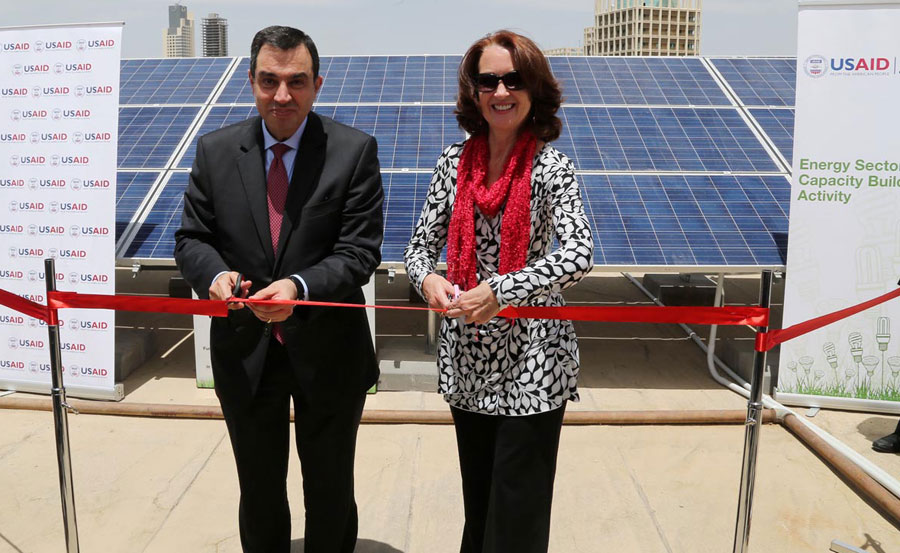AMMAN — A new solar power project launched Tuesday will help the Ministry of Planning and International Cooperation reduce its annual electricity bill by 20 per cent.
The USAID-financed project entailed the installation of photovoltaic systems on the ministry’s rooftop to generate electricity from sunshine, Minister of Planning and International Cooperation Imad Fakhoury said Tuesday after inaugurating the project with USAID Mission Director Beth Paige.
The ministry’s electricity bill amounted to JD137,000 in 2014, when it consumed 586,967 kilowatt hours, according to official figures.
“The project will help us reduce the bill by a minimum of 20 per cent. The ministry is the first in the public sector to launch such a project. Its implementation... follows another project implemented by the Royal Court,” the minister noted.
“This project is a true realisation of Jordan’s keenness on using local and clean sources of energy… We hope more public agencies will implement such projects due to their importance in reducing pressure on the state budget and slashing the electricity bill,” Fakhoury added.
The cost of the project can be recovered in two to three years, he said, adding that cutting costs is among the top priorities.
The USAID provided JD55,000 to finance theproject, according to officials from the US agency attending the launch.
Jordan has one of the highest annual daily averages of solar irradiance in the world with an estimated 330 days of sunshine per year.
The Kingdom, which imports about 97 per cent of its energy needs, is working on a series of renewable energy projects that will increase the contribution of local energy resources to the energy mix from the current 3 per cent to 40 per cent by 2020.
